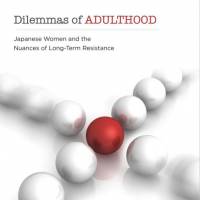As the '90s settled in and the new millennium was fast approaching, Japanese society saw an increase in the governmental status of "not yet married" women. The women classified under this category saw themselves as the up-and-coming future for postwar Japan. With an almost five-year increase in the age of first marriage, the mean went from 24.2 years old in 1970 to 28.6 in 2009. While these women faced societal pressure from the government and their own mothers to get married, there was more freedom and flexibility in remaining single.
With individuality and independence on the rise, the percentage of women staying single increased throughout all age groups. In well-known anthropologist Nancy Rosenberger's new book, "Dilemmas of Adulthood: Japanese Women and the Nuance of Long-Term Resistance," the many challenges of staying a single woman in Japan are outlined and explored. In-depth interviews demonstrate differences among the women themselves.
The target group Rosenberger focuses on inhabit Tokyo, Iwate Prefecture's Morioka and surrounding villages. Location, education and class play a significant role in the levels of constraint felt by the women in these areas. Rosenberger also demonstrates the progression of the group, which she first interviewed in 1993 and then intermittently until 2004.
From successfully single women to stay-at-home moms, "Dilemmas of Adulthood" shows the inner thoughts of women who waited to marry and those who chose a different path in life. The interviews in particular give a clear insight onto the experiences of those who are reshaping Japanese society today.



















With your current subscription plan you can comment on stories. However, before writing your first comment, please create a display name in the Profile section of your subscriber account page.